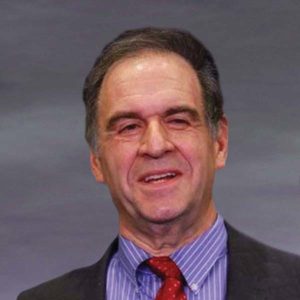Don’t Lose The Future


 Mick Jagger was 21 when he sang the Rolling Stones’ 1964 hit “Time Is On My Side.” He surely doesn’t believe that at age 77, nor do CEOs of any age. Whether in daily activities or enterprise performance standards, the clock is always ticking. And that can be a trap.
Mick Jagger was 21 when he sang the Rolling Stones’ 1964 hit “Time Is On My Side.” He surely doesn’t believe that at age 77, nor do CEOs of any age. Whether in daily activities or enterprise performance standards, the clock is always ticking. And that can be a trap.
Harvard’s Michael Porter and Nitin Nohria studied how CEOs spend their time and found that CEOs worked far more than 60 hours a week, less than half of that time in their offices. Roughly 70 percent of the focus of this activity was directed toward internal constituencies, while 30 percent, on average, was spent with outsiders. Of the latter, 16 percent was devoted to business partners (customers, suppliers, bankers, investors, consultants, lawyers, PR firms and other service providers), 5 percent to the company’s board of directors and 9 percent to other outside commitments, such as other boards, industry associations and the media.
The problem with this daily treadmill is that it can obscure the bigger challenge: attending to the strategic horizon of the enterprise, balancing short-term pressures of immediate profits and share value against longer-term investment for enterprise building.
Former Honeywell CEO Dave Cote’s book Winning Now, Winning Later shows how he triumphed at this delicate balancing act. During 16 years at the helm of Honeywell, he succeeded in delivering increases in quarterly earnings through continuous improvements in the company’s most lucrative existing products, from airline components to gas detection devices, while simultaneously channeling billions into new projects that took five or six years to harvest but led to big payoffs.
In that time, sales increased from $22 billion to $40 billion, operating margins from 8 percent to 16 percent. The stock price grew fourfold, building market cap from $20 billion to $120 billion, despite spending $10 billion resolving environmental issues, including asbestos claims, and fully funding the struggling pension plan. Many of Cote’s solutions entailed breaking out of hire/fire reactive staffing cycles, more accurate financial planning, curtailing management bloat with broader roles, growing sales without growing costs and investing in the future in carefully focused fields.
Relentless focus on balancing short- and long-term strategic planning proves particularly prescient in a crisis, as evidenced by Jeffrey Solomon, CEO of investment banking firm Cowen. In the midst of Covid-19, Cowen’s Q3 2020 performance shows a 27 percent jump in revenues and a 270 percent increase in economic operating income. The past two quarters, it’s been higher than during any two full years combined in Cowen’s history. As Solomon told me, “Following our mantra of ‘simpler, fewer, deeper,’ we achieved these results through years of planning and dedication to build a focused, innovative and resilient business.”
Solomon balanced immediate results in investment banking with an 85 percent increase in revenues due to immediate opportunities the company could snag to past investments in key areas of expertise. Investments anchored in healthcare biotechnology, healthcare tools and diagnostics, MedTech and digital health and therapeutic and vaccine development proved priceless. This healthcare focus and a strong commitment to sustainability in transactions also fueled investment management growth by attracting investors interested in related private equity drawing upon such fields of expertise. Thus, blending short-term performance across the team for longer-term purpose again paid off.
Yogi Berra had it right. “When you get to a fork in the road, take it.” Good advice.


0

1:00 - 5:00 pm
Over 70% of Executives Surveyed Agree: Many Strategic Planning Efforts Lack Systematic Approach Tips for Enhancing Your Strategic Planning Process
Executives expressed frustration with their current strategic planning process. Issues include:
Steve Rutan and Denise Harrison have put together an afternoon workshop that will provide the tools you need to address these concerns. They have worked with hundreds of executives to develop a systematic approach that will enable your team to make better decisions during strategic planning. Steve and Denise will walk you through exercises for prioritizing your lists and steps that will reset and reinvigorate your process. This will be a hands-on workshop that will enable you to think about your business as you use the tools that are being presented. If you are ready for a Strategic Planning tune-up, select this workshop in your registration form. The additional fee of $695 will be added to your total.

2:00 - 5:00 pm
Female leaders face the same issues all leaders do, but they often face additional challenges too. In this peer session, we will facilitate a discussion of best practices and how to overcome common barriers to help women leaders be more effective within and outside their organizations.
Limited space available.

10:30 - 5:00 pm
General’s Retreat at Hermitage Golf Course
Sponsored by UBS
General’s Retreat, built in 1986 with architect Gary Roger Baird, has been voted the “Best Golf Course in Nashville” and is a “must play” when visiting the Nashville, Tennessee area. With the beautiful setting along the Cumberland River, golfers of all capabilities will thoroughly enjoy the golf, scenery and hospitality.
The golf outing fee includes transportation to and from the hotel, greens/cart fees, use of practice facilities, and boxed lunch. The bus will leave the hotel at 10:30 am for a noon shotgun start and return to the hotel after the cocktail reception following the completion of the round.